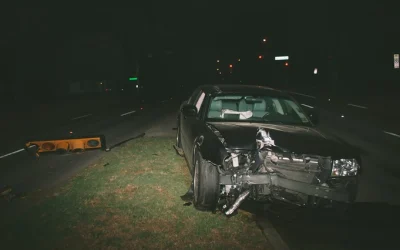Nevada self-defense laws protect a person from being punished when that person uses justifiable force against another person in a circumstances where force is necessary to protect themselves, a loved one, another person needing assistance, or their property.
Karen A. Connolly is an aggressive criminal defense lawyer with over 20 years of experience and track record of not-guilty verdicts.
Self-defense may be necessary to protect yourself or another against a variety of crimes in Nevada, which include, but are not limited to
Common Nevada self-defense scenarios:
Self-defense against battery (non-deadly force)
Self-defense against attempted murder or great bodily harm (deadly force)
Self-defense to protect property or against home invasion
Self-defense Against Battery (Non-deadly Force)
The use of non-deadly force against another to protect yourself or another against bodily injury is sometimes necessary and legal. If you have been charged with a battery after using force to protect yourself or another from being injured by another person you may have the defense of self-defense if:
You reasonably believed that you or another person was facing immediate bodily harm; and You used no more physical force than necessary to protect yourself or another person.
A person may also use non-deadly force against another in self-defense without fear of a battery or assault conviction if the circumstances would be justified under the laws allowing for the use of deadly force as outlined below.
Self-defense Against Attempted Murder or Great Bodily Harm (Deadly Force)
The “Stand Your Ground” laws gained a lot of attention after the shooting and killing of Trayvon Martin.
Nevada has its own stand your ground law, but unlike some states, in Nevada the person claiming a defense under the stand your ground law cannot be the original aggressor.
In Nevada, the use of deadly force is justifiable in certain circumstances to prevent that person from taking your life. According to NRS 200.200 a person can kill another in self-defense if it appears that:
The danger was so urgent and pressing that, in order to save the person’s own life, or to prevent the person from receiving great bodily harm, the killing of the other was absolutely necessary; and
The person killed was the assailant, or that the slayer had really, and in good faith, endeavored to decline any further struggle before the mortal blow was given.
A person may have a defense of justifiable homicide if the killing of another person was necessary self-defense and according to NRS 200.120 has no duty to retreat before using deadly force if:
The person is not the original aggressor;
Has a right to be present at the location where deadly force is used; and
Is not actively engaged in conduct in furtherance of criminal activity at the time deadly force is used.
According to NRS 200.160, homicide in Nevada is also justifiable if committed when used:
In the lawful defense of the slayer, or his or her husband, wife, parent, child, brother or sister, or of any other person in his or her presence or company, when there is reasonable ground to apprehend a design on the part of the person slain to commit a felony or to do some great personal injury to the slayer or to any such person, and there is imminent danger of such design being accomplished; or
In the actual resistance of an attempt to commit a felony upon the slayer, in his or her presence, or upon or in a dwelling, or other place of abode in which the slayer is.
The person using deadly force in self-defense, however, must have more than a bare fear. The circumstances that ignited the fear must be sufficient to excite the fears of a reasonable person and the party acting in self-defense must truly act under those fears and not in revenge.
If a person is charged with a homicide and it is determined that it was a justifiable homicide then the person will be acquitted of all charges and be discharged.
Self-defense to Protect Property or Against Home Invasion
A person may use self-defense to protect their property or during a home invasion. Even the use of deadly force may be necessary and appropriate depending on the situation.
According to NRS 200.120, a person may commit justifiable homicide while protecting their home or property against a person who intends, by violence or surprise, to commit a felony or against a person who intends, in a violent, riotous, tumultuous, or surreptitious manner, to enter the home of another for the purpose of assaulting or offering personal violence to any person in the dwelling.
Again, the person using deadly force in self-defense has no duty to retreat if:
The person is not the original aggressor;
Has a right to be present at the location where deadly force is used; and
Is not actively engaged in conduct in furtherance of criminal activity at the time deadly force is used.
Also, again the person using the deadly force in self-defense must have a fear in the circumstances that a reasonable person would have in the same circumstances and be truly acting on those fears and not in revenge.
In Nevada, if a person has knowledge of another person committing a home invasion or burglary of their residence and has reasonable fear of death or bodily injury, that person may use deadly force and does not have to fear civil repercussions from personal injury or wrongful death suits.
In Nevada, a residence is defined as a house, room, apartment, tenement or other building, vehicle, vehicle trailer, semitrailer, house trailer or boat designed or intended for occupancy as a residence.
For many, the use of force, whether deadly or not, is not an everyday occurrence and is not a welcomed activity, but nonetheless sometimes is necessary to protect yourself, another, or your property.
Conclusion
Nevada has implemented several laws to protect a person from criminal and civil repercussions when the need arises to use force against another to protect yourself. Self-defense can be a valid defense to many cases of battery or homicide when reasonable force is used.




